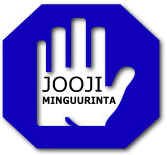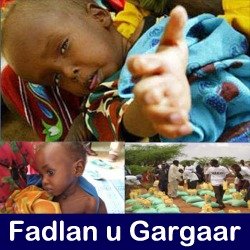Sheikh Omar Faruuq Haji Abdi Sultan Haji Mohamud was born in 1939 in the village of Qooxley which is situated between the larger Qallaafe and Qabridahhare districts in Ethiopia whose popular name is ‘Armaale’. The village of Armaale was started by his own father, the late Haji Abdi Suldan who had a religious order that consisted of Tahfidh and a centre where all kinds of Islamic knowledge was taught. The Tahfidh was run by the late Mo’allim Osman Mo’allim Dhicis.
The late Sheikh Omar Faaruuq hailed from an acclaimed religious family. His mother A’isha Sheikh Ahmed Guure died when he was three. His father followed after three years forcing his grand mother and his elder brothers to raise him. After his grand-mother took him in, his maternal uncle, the late Sheikh Hussien Sheikh Ahmed became his Quranic teacher.
It was under the watchful eyes of his maternal uncle that he had memorized the Holy Quran. After this, he started to enrol in traditional religious seminaries in order to learn the fiqh (Islamic Jurisprudence). His first undertaking was Safinatul-salat. He was 14 when he started this mission and his first Sheikh was the late Sheikh Osman Jire Sheikh Hussein Dhaqane.
On the Arabic language, the Sheikh had the advantage of being born to a religious family and this made it easier for him to learn the Arabic language-the language of Islam and its knowledge. His elder brother, Sheikh Shaf’I Haji Abdi Sultan and Sheikh Murshid Haji Ahmed-his cousin- assisted him in mastering the language. They taught him the language starting with its phrases, vocabulary, grammar upto the Alfiyah of Ibnu Malik.
Then he followed this by learning the Quran’s exegesis (tafsir). His Sheikh was the late Sheikh Yusuf who was based in Qallaafe, a city famous for its religiosity and Islamic orders.
After learning the Tafsir, the Sheikh left Qallaafe in search for more knowledge. Having passed through a number of regions, he finally settled in Mogadishu, the Somali capital. This was before Somalia’s independece in the fifties. Typical of him, as he learnt more, he gave more. He started his own halaqa (religious gathering) to teach others what he learnt of. At the same time, he joined the halaqa of the then Somalia’s unrivalled Muhaddith-the late Sheikh Ibrahim Suuley where he ferociously grasped the teachings of the great Sheikh.
After this, the Sheikh joined the famed Mah’ad of the Islamic Religion known the Religious Mah’ad of Mogadishu. The teachers of the school were Egyptians who came to Somalia after the independence to help their brethren learn about their faith after a brutal suppression of the Islamic faith by the Italian colonialists like the French colonialists in Algeria.
 Later he joined the Mah’ad of Tadhamun where finished the equivalent of high school. The school was run by the Saudis. After his graduation in 1975, he proceeded to the prestigious Islamic Universith of Madinah where he graduated from faculty of Dawa and Usul-al din in 1979 with First Class Honours.
Later he joined the Mah’ad of Tadhamun where finished the equivalent of high school. The school was run by the Saudis. After his graduation in 1975, he proceeded to the prestigious Islamic Universith of Madinah where he graduated from faculty of Dawa and Usul-al din in 1979 with First Class Honours.
After his graduation, he engaged in active dawa activities and preached to the Somali community in Saudi Arabia. He formed a halaqa in Jeddah where he settled and taught almost every important Islamic book that he thought mattered to his people. A number of his books and lecturers were recorded. They include: Manhajul-al Muslim, Taysir al’ Allam, Arba’in an-Nawawi and the Tafsir.
The recordings of his book spread like bushfire and almost every Somali family owned one or more. His Tafsir is undoubtedly Somalia’s most popular Tafsir and it is easy to hear it from every corner such as the cafeterias, restaurants, libraries and mosques. A number of his students later created the Sheikh Omar Faaruuq Library.
After Somalia’s collapse, thousands of Somalis flew to the four corners of the world and a large Somali Diaspora was created, mainly in Europe. This Diaspora was very much interested in meeting the Sheikh and learning more from his abundant knowledge, especially that they were faced by new challenges having settled in non-Islamic countries.
Because of this great desire on the part of the Somali Diaspora, the Sheikh visited a number of Western countries to meet them and answer their burning questions that needed an immense of knowledge of the Fiqh and especially Fiqh al–Aqalliyyat: the legal theory for Muslim minorities.
He was also involved in numerous reconcilation afforts that aimed at getting a solution for Somalia’s problems. He was part of the Somalia Scholars Umbrella and its Deputy Chairman. He declined its chairmanship arguing that he lived outside the homeland. Despite this engagement, he never left his main calling which was to spread the Islamic knowledge.
Despite the internecine civil wars that raged in Somalia, the Sheikh returned to Somalia in the early nineties and started a halaqa of the Tafsir. This gathering was so popular that it drew thousands of people coming from all corners of Mogadishu and its environs. His Friday sermon was a must attend in Mogadishu. An orator per excellence who was at ease with his mother tongue and even invented numerous terminologies, Sheikh Omar was unrivalled in this regard.
Despite his active schedule, age seemed to be catching up with the Sheikh and he also suffered diabetes that led to the amputation of his fingers. Inspite of that, he actively continued to spread the dawa especially in the Republic of Djibouti where he was a state guest to the Djibouti President, Ismail Omar Guelleh and also in Saudi Arabia where he maintained a big audience. He longed to see a peaceful and prosperous Somalia-a dream that Allah (SW) didn’t avail it to him, but a dream millions of his students yearn for.
On Tuesday, 8th of March, 2011, Sheikh Omar passed on to the mercy of Allah (SW). He was buried in the sacred City of Mecca after thousands prayed on his soul at the Masjid al-Haram on 9th March, 2011. The Sheikh left behind 15 children from four wives. Apart from a humble abode consisting of two rooms in Mogadishu, the Sheikh didn’t own other wealth. His wealth was the Islamic knowledge that he passionately spread to his people for more than four decades.
Inna lillahi wa inna ilayhi raji’un
By:
Mohamed Wali “Xiish Cadaawe”
Melbourne,Australia.
email: xiish3 [@] hotmail .com




































comment closed after 30 days / Jawaabaha waa la xiray ama waa la joojiyay wixii ka badan 30 cisho.